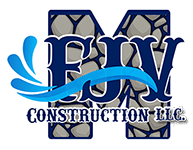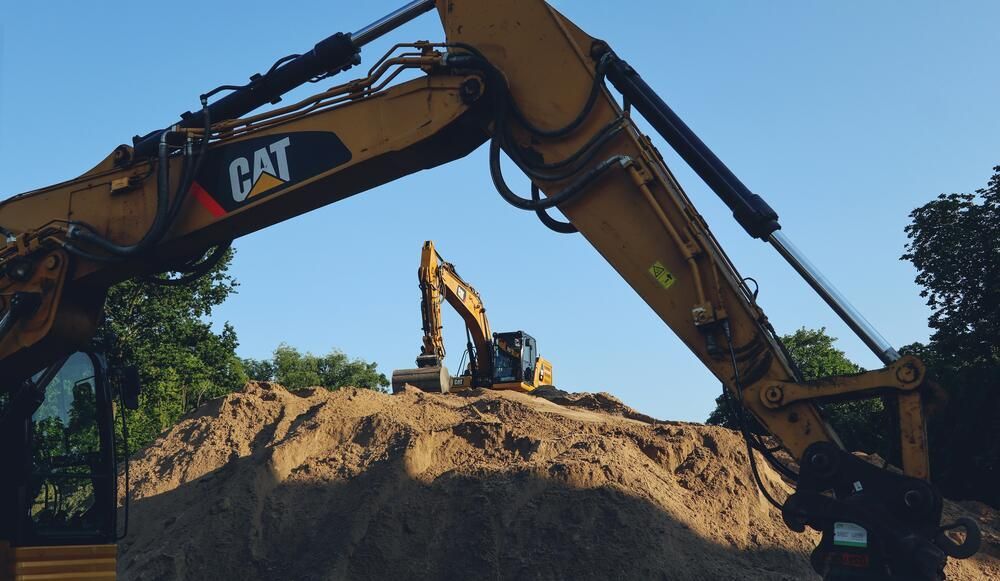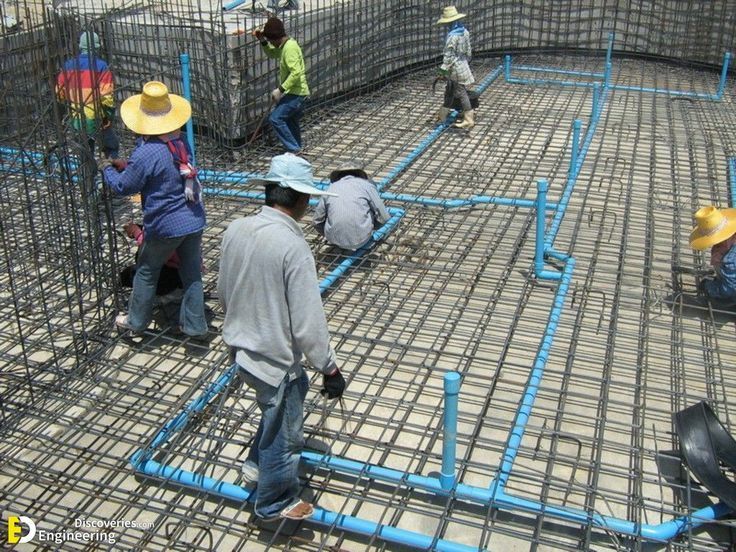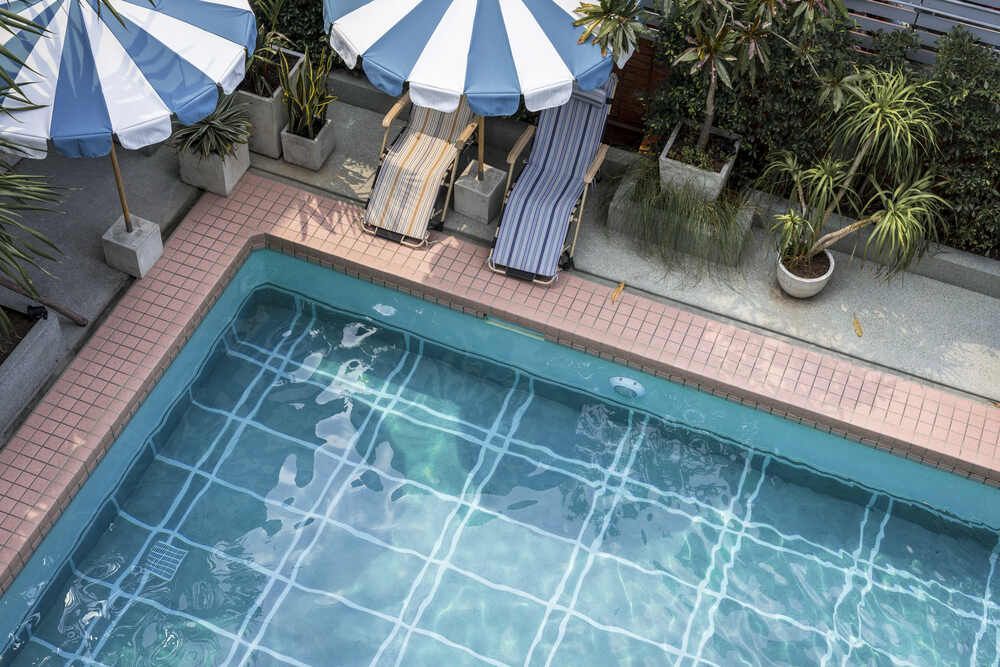6 Benefits of Pool Restoration Before Selling Your Home

Restoring a pool before selling a home can significantly enhance its market appeal and increase property value. An in-ground pool can increase a home's value by approximately 7%. Moreover, a well-maintained pool not only attracts potential buyers but also reduces concerns about future maintenance costs and safety issues. By investing in pool restoration, homeowners can present a polished and updated feature that boosts curb appeal, energy efficiency, and overall buyer interest, ultimately leading to a more successful sale.
Here are six benefits of pool restoration near me before selling your Danbury home.
Table of Contents
Key Takeaways
1. Enhancing Curb Appeal and First Impressions
2. Increasing Property Value
3. Reducing Buyer Concerns About Maintenance
4. Extending the Pool’s Lifespan
5. Boosting Energy Efficiency
6. Expanding Buyer Interest
How to Assess If Your Pool Needs Restoration Before Selling
Frequently Asked Questions (FAQs)
Enhance Your Property with Pool Restoration Near Me Services by FJV Construction in Charlotte, NC
Key Takeaways
✔
Pool restoration enhances a home's curb appeal, making a stronger first impression on potential buyers.
✔
A restored pool can significantly increase a property's market value, leading to higher offers.
✔
Addressing maintenance concerns through pool restoration reassures buyers, reducing their fears of costly repairs.
✔
Pool restoration extends the lifespan of the pool, making it a more attractive feature for long-term use.
✔
Energy-efficient upgrades during pool restoration can appeal to eco-conscious buyers and lower operating costs.
✔
Restoring a pool can broaden the market appeal, attracting families, luxury buyers, and a wider range of potential buyers.
✔
Pool restoration before selling is a strategic investment that helps a home stand out in a competitive market, increasing the chances of a successful sale.
1. Enhancing Curb Appeal and First Impressions
In 2023, the swimming pool construction industry in the United States saw revenue reach approximately $12.2 billion. Pool restoration plays a significant role in improving a home’s overall appearance and attractiveness to potential buyers. A well-maintained pool can transform the outdoor space, making a stronger first impression, which is crucial when selling a property. Restoring a pool before listing the home ensures it looks clean, inviting, and ready for use, giving buyers more reason to consider the property.
Why Curb Appeal Matters
- Attracts More Buyers: First impressions matter, and a clean, restored pool enhances the overall aesthetic of the property. This can attract more potential buyers who are looking for a home with an appealing outdoor space.
- Stand Out in a Competitive Market: In markets where homes with pools are common, a well-restored pool can make the property stand out. Pool restoration ensures that the home’s outdoor area is a unique selling point compared to other properties on the market.
How Pool Restoration Improves Appearance
- Surface and Tile Repairs: Cracked tiles or a worn pool surface can detract from the appearance of the pool. Pool restoration includes resurfacing and tile replacement, giving the pool a like-new look that instantly upgrades the backyard.
- Water Quality and Filtration: Restoring a pool also means upgrading the filtration system, ensuring crystal-clear water. Clear, sparkling water adds to the visual appeal and indicates that the pool is well-maintained.
- Deck and Surrounding Area Enhancements: Restoring the pool may also involve updating the surrounding deck or landscaping. These improvements create a cohesive and inviting outdoor space, increasing the overall curb appeal of the home.
2. Increasing Property Value
Pool restoration has a direct impact on a home's overall property value. Buyers are willing to pay a premium for a home with a well-maintained pool that adds both functionality and visual appeal. A restored pool can contribute significantly to the appraisal value, making it a wise investment before selling.
How Pool Restoration Impacts Value
- Boosts Appraisal Value: A restored pool can increase the appraisal value of a property, giving homeowners a stronger position when negotiating the sale price. Buyers see a functional, attractive pool as a luxury feature, increasing the home’s worth.
- Enhances Marketability: Homes with restored pools are more likely to attract higher offers from buyers, as the pool is perceived as an added asset. Pool restoration ensures that the pool is in top condition, making it a desirable feature that adds to the home’s overall value.
How Pool Restoration Adds Value
- Modern Equipment Upgrades: Pool restoration often involves upgrading equipment like pumps, heaters, and lighting, which adds value to the property by ensuring efficiency and longevity. Buyers appreciate the reduced maintenance costs that come with these updates.
- Aesthetic Improvements: A restored pool enhances the aesthetic of the outdoor space, making it more appealing to potential buyers. Visual upgrades like new tiles, resurfacing, or updated decking can significantly boost a home’s market value.
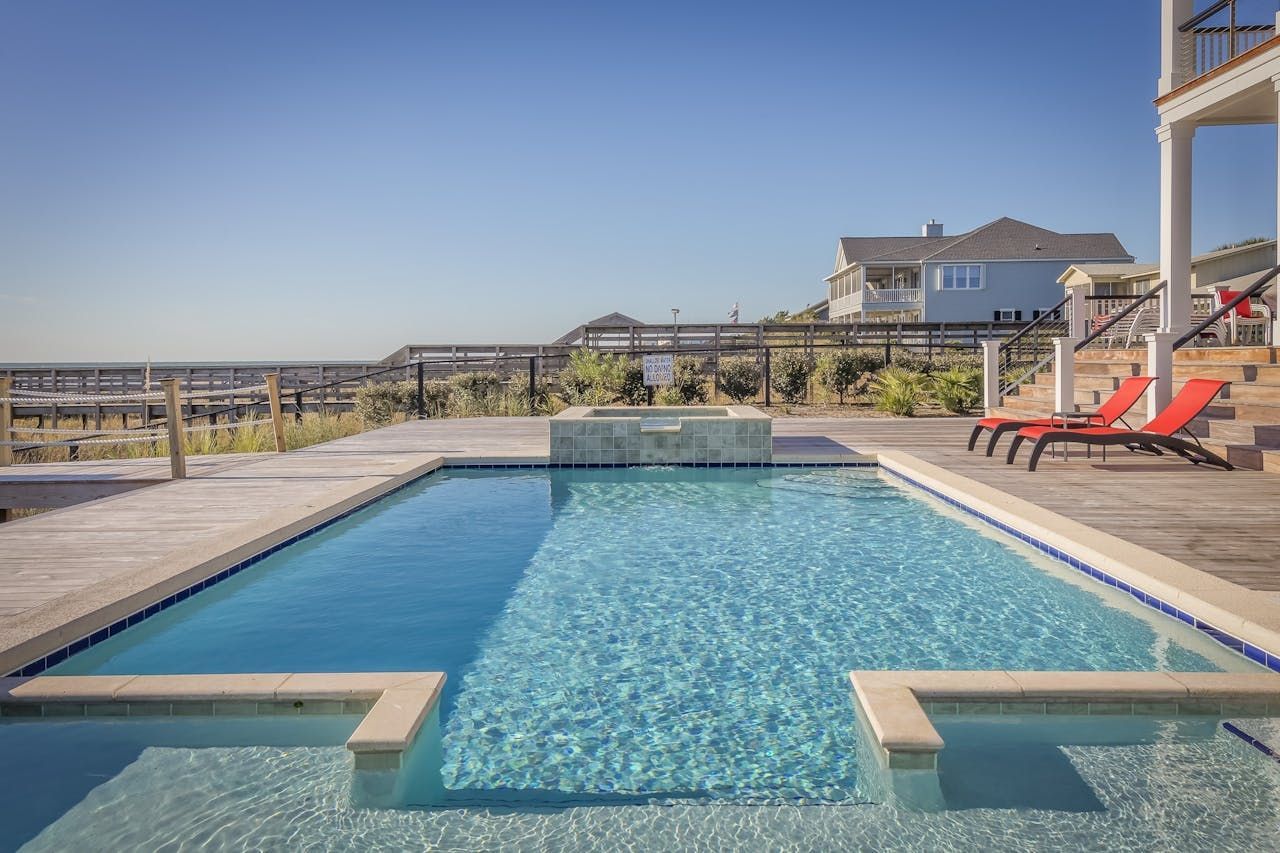
3. Reducing Buyer Concerns About Maintenance
Buyers are often cautious about purchasing a home with an aging or poorly maintained pool due to concerns about repair and upkeep costs. Pool restoration addresses these issues upfront, offering peace of mind to potential buyers. A restored pool signals to buyers that the pool is in excellent condition and will require minimal maintenance in the near future.
Addressing Common Buyer Concerns
- Lower Maintenance Costs: Restoring a pool ensures that it’s equipped with updated, energy-efficient systems, reducing ongoing maintenance costs. Buyers are more likely to consider homes with pools that don’t pose a financial burden.
- Safety Reassurance: Many buyers, especially families, are concerned about pool safety. Pool restoration can include adding or upgrading safety features, such as fences or alarms, which alleviates these concerns and makes the property more attractive.
How Pool Restoration Mitigates Risks
- New Filtration and Pump Systems: Replacing outdated filtration and pump systems during restoration reduces the likelihood of breakdowns and costly repairs after purchase. Buyers will feel more confident purchasing a home with a pool that has updated equipment.
- Structural Repairs: Pool restoration addresses structural issues like leaks or cracks, ensuring the pool is fully operational. Buyers are less likely to worry about unexpected repairs when these issues are resolved beforehand.
4. Extending the Pool’s Lifespan
Investing in pool restoration before selling helps extend the overall lifespan of the pool, making it a more attractive feature for potential buyers. Restoring a pool includes addressing both cosmetic and structural issues, which increases the longevity of the pool and reassures buyers that they won’t need to invest in major repairs.
Why Pool Longevity Is Important
- Avoids Immediate Repairs: A restored pool offers buyers peace of mind, knowing they won’t face immediate repair costs. This reassurance increases buyer confidence, as they see the pool as a long-term investment that will remain in good condition for years to come.
- Increases Appeal for Buyers: Homes with pools that are restored and built to last are far more appealing to potential buyers. The extended lifespan of the pool translates into fewer maintenance concerns and more enjoyment for the new homeowner.
How Pool Restoration Extends Lifespan
- Addressing Structural Integrity: Restoration work often includes fixing structural issues, such as cracks, leaks, or worn-out surfaces. These repairs not only improve the pool’s appearance but also extend its usable life.
- Updating Essential Systems: By updating essential components like heating systems, lighting, and filtration, the pool remains functional for years to come. Buyers are more likely to invest in a home with a pool that has been upgraded for longevity.
5. Boosting Energy Efficiency
Modern pool restoration projects often include upgrades that make the pool more energy-efficient. This is a major selling point for buyers looking for homes that offer long-term cost savings. A pool with energy-efficient features reduces utility costs, making it more appealing to eco-conscious buyers.
How Pool Restoration Enhances Efficiency
- Upgrading to Energy-Efficient Equipment: Restoration often includes installing energy-efficient pumps, heaters, and filtration systems, which significantly reduce energy consumption. Buyers are drawn to these features as they offer long-term savings on energy bills.
- Eco-Friendly Materials and Design: Using sustainable materials during the pool restoration process can further boost the energy efficiency of the pool. This is a desirable feature for environmentally conscious buyers who value eco-friendly living.
Why Efficiency Matters to Buyers
- Lower Utility Costs: Energy-efficient pools cost less to operate, which is an attractive selling point for buyers. Buyers are more inclined to invest in a home that offers reduced energy costs and an eco-friendly design.
- Sustainable Living Appeal: More buyers are looking for homes with sustainable features, and an energy-efficient pool fits perfectly into this trend. Pool restoration that focuses on energy efficiency can help the home stand out in a competitive market.
6. Expanding Buyer Interest
Pool restoration can increase the pool’s appeal to a wider range of potential buyers. Whether it’s families, luxury homebuyers, or eco-conscious individuals, a restored pool broadens the market appeal of a home. This can result in more interest and potentially higher offers from a diverse pool of buyers.
Attracting Different Buyer Demographics
- Families with Children: Families are often drawn to homes with pools as they provide recreational space for children. A restored pool that includes safety features can make the property even more appealing to this demographic.
- Luxury Buyers: High-end buyers often expect homes to come with luxury amenities like a pool. A restored pool with modern features can position the home as a premium property.
How Pool Restoration Broadens Market Appeal
- Improves Versatility: A restored pool can serve multiple purposes, whether as a family-friendly space or a luxurious outdoor feature. This versatility appeals to a wider range of buyers, increasing the chances of a successful sale.
- Increases Offers: With a restored pool that caters to different buyer needs, the property is likely to attract more competitive offers. Pool restoration enhances the home’s overall desirability, leading to a smoother and potentially faster sale.
How to Assess If Your Pool Needs Restoration Before Selling
Before selling a home, it’s important to evaluate whether the pool requires restoration to boost the property’s market value and appeal. A well-maintained pool can be a major selling point, while a neglected one might deter potential buyers. Here are key aspects to consider when assessing whether pool restoration is necessary before putting the house on the market.
1. Check for Cracks and Structural Damage
Cracks in the pool’s surface or decking can be a major red flag for buyers, signaling potential safety hazards or costly repairs. Structural issues can lead to water leakage and expensive future maintenance for buyers, reducing the appeal of the home. Addressing these issues through pool restoration not only improves safety but also enhances the visual appearance.
2. Inspect Pool Equipment
Outdated or malfunctioning pool equipment, such as pumps, filters, and heaters, can deter potential buyers. If the equipment is inefficient or broken, it signals future repair costs and higher energy bills. Pool restoration should include updating or repairing key equipment to ensure that the pool operates smoothly and efficiently.
3. Evaluate the Pool Surface
A worn or damaged pool surface can make the pool look neglected and uninviting. Peeling plaster, chipped tiles, or fading colors detract from the overall aesthetic and may lead buyers to perceive the home as poorly maintained. Pool restoration often includes resurfacing, which revitalizes the pool’s appearance and gives it a fresh, new look.
4. Assess Water Quality
Cloudy or discolored water is an immediate sign that the pool is not well-maintained, which can be off-putting to potential buyers. Poor water quality may indicate that the filtration or cleaning systems are not functioning properly. Pool restoration should involve cleaning or replacing the filtration system to ensure crystal-clear water and a healthy, welcoming environment.
5. Examine Pool Safety Features
Safety is a top concern for families with children, and an unsafe pool could turn potential buyers away. Check that safety features, such as pool covers, fences, and alarms, are up to date and in compliance with local regulations. Pool restoration may include upgrading or installing safety measures to reassure buyers and increase the pool’s marketability.
6. Consider Energy Efficiency
Energy-efficient pools are highly attractive to eco-conscious buyers who are looking to reduce utility costs. Assess whether the pool’s equipment is energy-efficient or if there are options to upgrade to more sustainable solutions, such as solar-powered heating or LED lighting. Pool restoration that includes energy-efficient upgrades can boost the home’s value and make it more appealing to modern buyers.
7. Look for Signs of Leaks or Water Loss
Unexplained water loss or visible signs of leaking around the pool can indicate significant problems that require immediate attention. Leaks can cause long-term damage not only to the pool structure but also to the surrounding landscape or foundation of the home. Pool restoration should address leaks and water loss issues to prevent further damage and avoid deterring potential buyers during the selling process.
Frequently Asked Questions (FAQs)
1. How long does pool restoration take before selling a home?
The time required for pool restoration depends on the scope of the work being done. Minor cosmetic updates, such as resurfacing or tile replacements, may take a few days to a week. However, more extensive restorations involving structural repairs, equipment upgrades, or major overhauls can take several weeks. It’s important to plan the restoration well in advance of listing the home to ensure the work is completed on time.
2. How much does pool restoration typically cost?
The cost of pool restoration can vary widely depending on the type and extent of repairs needed. Simple cosmetic improvements, such as resurfacing or retiling, can range from $1,000 to $5,000. However, more extensive restorations that include structural repairs or equipment upgrades may cost $10,000 or more. It’s best to get quotes from several contractors to estimate the cost based on the specific needs of the pool.
3. Is pool restoration worth the investment before selling?
Pool restoration can be a worthwhile investment, as it enhances curb appeal, increases property value, and attracts more potential buyers. A restored pool can set the home apart in a competitive market, making it more appealing to buyers who value outdoor living spaces. Additionally, a well-maintained pool alleviates buyer concerns about future repair costs. Ultimately, a restored pool can help the property sell faster and at a higher price.
4. Can pool restoration improve energy efficiency?
Yes, pool restoration can include upgrades that improve energy efficiency, such as installing energy-efficient pumps, heaters, or solar-powered equipment. These enhancements reduce the pool’s energy consumption and lower operating costs, which is attractive to eco-conscious buyers. Upgrading to LED lighting or using sustainable materials for the deck can also contribute to a more energy-efficient setup. Energy-efficient features can increase the value of the home and appeal to a wider range of buyers.
5. Does pool restoration require permits or inspections?
In some cases, pool restoration may require permits, particularly for structural repairs or significant changes to the pool’s design or safety features. Homeowners should check with their local building department to understand the specific regulations in their area. It’s also a good idea to schedule a professional inspection after the restoration to ensure the pool meets safety and building codes. A pool that passes inspection adds reassurance for potential buyers, increasing its appeal on the market.

Enhance Your Property with Pool Restoration Near Me Services by FJV Construction in Charlotte, NC
Upgrade your home’s outdoor space with professional pool restoration near me from FJV Construction in Charlotte, NC. Our experienced team specializes in revitalizing pools by repairing surfaces, upgrading equipment, and enhancing safety features to boost the overall appeal and value of your property. By choosing FJV Construction, you ensure a stunning and functional pool that not only attracts potential buyers but also sets your home apart in the market.
Trust our expert pool restoration services to make a lasting impression.
Our Info
Monday to Friday from 7 am to 6 pm
Saturdays from 8 am to 5 pm
We Accept Cash and Checks
LOCATION
We Cover 80 Miles around Bethel,
Danbury, and Brookfield
Bethel, Connecticut 06801
Danbury, Connecticut 06810
Brookfield, Connecticut 06804
Navigation
Copyright FJV Construction, All Rights Reserved
